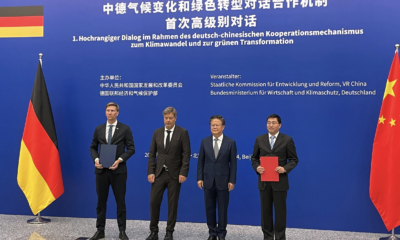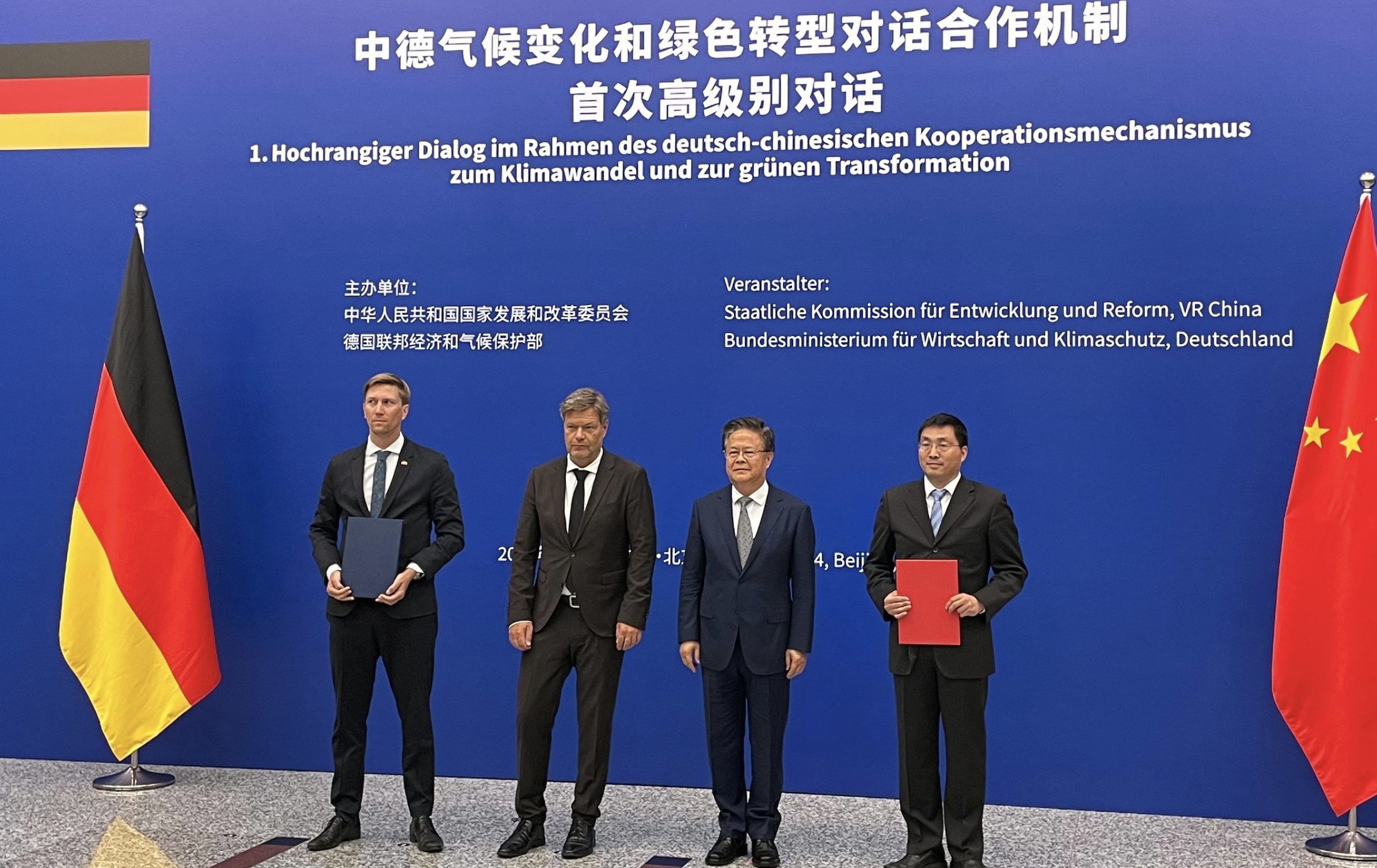In the world of importation, success often hinges on the strength of your supplier relationships. For Nigerian importers navigating global markets, cultivating reliable partnerships with overseas suppliers can lead to better pricing, consistent product quality, and smoother business operations.
But building and maintaining these relationships requires effort, strategy, and trust. This blog delves into practical tips Nigerian importers can use to foster long-term, mutually beneficial partnerships with their suppliers.
Why Strong Supplier Relationships Matter
- Better Pricing: Suppliers often offer discounts or favorable terms to trusted partners.
- Reliable Supply Chains: A strong relationship minimizes delays and ensures priority during high-demand periods.
- Product Quality: Suppliers are more likely to prioritize quality control for valued clients.
- Mutual Trust: Trust enables flexibility in negotiations, payment terms, and crisis management.
Tips for Building Strong Supplier Relationships
1. Conduct Thorough Research Before Choosing a Supplier
Before engaging with a supplier, ensure they are credible and reliable.
- Verify Credentials: Check reviews, certifications, and trade licenses. Platforms like Alibaba, Global Sources, and trade fairs often feature verified suppliers.
- Request Samples: Assess product quality before committing to large orders.
- Check Track Record: Ask for references or client testimonials to confirm their reliability.
Pro Tip: Use tools like Alibaba’s Trade Assurance for secure transactions and supplier verification.
2. Communicate Effectively
Clear, professional communication forms the backbone of any strong relationship.
- Use simple and direct language to avoid misunderstandings, especially if there’s a language barrier.
- Be transparent about your expectations for quality, pricing, and delivery timelines.
- Establish preferred communication channels (email, WhatsApp, WeChat, or video calls) to ensure smooth interactions.
Tip: Respect cultural differences in communication styles and negotiation tactics.
3. Start Small and Build Trust Gradually
- Begin with smaller orders to test the supplier’s reliability and quality.
- As trust develops, you can increase order sizes or expand the range of products sourced.
Example: A Nigerian fashion importer might order a small batch of clothing to assess quality before committing to a larger consignment.
4. Negotiate Fairly
Suppliers appreciate clients who understand the value of their products and services.
- Avoid excessively low offers that may compromise quality.
- Negotiate payment terms, such as partial deposits or extended deadlines, to build trust while managing your cash flow.
- Offer consistent business to encourage loyalty and better pricing.
5. Visit Suppliers in Person
Whenever possible, visit your suppliers to establish a personal connection and assess their operations.
- Attend international trade fairs (e.g., Canton Fair in China or India Trade Expo).
- Tour the supplier’s facility to verify production capacity and quality standards.
- Face-to-face meetings often lead to stronger partnerships and more favorable terms.
Pro Tip: If you can’t visit, hire a local trade agent or third-party inspection service to assess the supplier.
6. Build Long-Term Commitments
Suppliers value steady, predictable clients.
- Place regular orders to demonstrate your commitment to a long-term partnership.
- Work on exclusive agreements, such as discounts or priority access to new products.
Example: A Nigerian importer of electronics could negotiate exclusive rights to distribute certain products in their region.
7. Resolve Issues Proactively
Mistakes can happen in any business relationship. What matters is how you handle them.
- Address issues immediately, whether they involve product defects, shipping delays, or incorrect quantities.
- Approach conflicts calmly and seek solutions that work for both parties.
Tip: A collaborative attitude can turn a problem into an opportunity to strengthen the relationship.
8. Respect Cultural Differences
Understanding and respecting the cultural norms of your supplier’s country can go a long way.
- Research business etiquette for countries like China, Turkey, or India.
- Be mindful of holidays and customs that may affect production schedules (e.g., Chinese New Year or Ramadan).
Pro Tip: In some cultures, building personal rapport before discussing business is crucial.
9. Leverage Technology for Better Collaboration
- Use tools like Zoom or Microsoft Teams for virtual meetings.
- Track orders and shipments with supply chain management software.
- Share product specifications, designs, and other details using cloud storage platforms for real-time updates.
Example: Apps like WeChat are widely used for supplier communication in China, making it easier to stay connected.
10. Offer Feedback and Show Appreciation
Suppliers appreciate constructive feedback to improve their services.
- Provide detailed feedback on product quality, packaging, and delivery timelines.
- Show gratitude for good service by sending thank-you emails or recommending them to other buyers.
Tip: A small gesture, like a holiday card, can make a big impression.
Case Study: How a Nigerian Importer Built a Strong Supplier Relationship
Nduka Imports, a Lagos-based importer of kitchen appliances, struggled with inconsistent product quality and late deliveries from their Chinese supplier. To address this, they:
- Hired a third-party inspection service to verify shipments before dispatch.
- Negotiated better terms by committing to larger orders over six months.
- Built a personal connection by visiting the supplier’s factory during a trade fair in Guangzhou.
The result? A steady supply of high-quality products, improved delivery times, and exclusive discounts that boosted their profit margins.
Conclusion
Strong supplier relationships are the cornerstone of a successful importation business. By prioritizing clear communication, fairness, and trust, Nigerian importers can build partnerships that deliver consistent quality, competitive pricing, and long-term growth.
Remember, cultivating these relationships takes time and effort, but the rewards are worth it. Whether you’re importing electronics, fashion, or industrial goods, these lessons can help you create a reliable and profitable supply chain.
Are you an importer looking for tips on supplier management? Share your challenges or success stories in the comments below!

 Business2 years ago
Business2 years ago
 Tech2 years ago
Tech2 years ago
 Business2 years ago
Business2 years ago
 Business2 years ago
Business2 years ago
 Business2 years ago
Business2 years ago
 Markets2 years ago
Markets2 years ago
 News2 years ago
News2 years ago
 Politics2 years ago
Politics2 years ago






 Bitcoin
Bitcoin  Ethereum
Ethereum  Tether
Tether  XRP
XRP  USDC
USDC  Lido Staked Ether
Lido Staked Ether  TRON
TRON  Dogecoin
Dogecoin  Cardano
Cardano  Bitcoin Cash
Bitcoin Cash  WhiteBIT Coin
WhiteBIT Coin  Wrapped Bitcoin
Wrapped Bitcoin  Wrapped eETH
Wrapped eETH  Chainlink
Chainlink  LEO Token
LEO Token  Monero
Monero  Zcash
Zcash  Stellar
Stellar  Sui
Sui  Ethena USDe
Ethena USDe  Litecoin
Litecoin  Avalanche
Avalanche  Hedera
Hedera  Shiba Inu
Shiba Inu  Toncoin
Toncoin  Dai
Dai  Cronos
Cronos  Uniswap
Uniswap  PayPal USD
PayPal USD  Polkadot
Polkadot  Mantle
Mantle  Pepe
Pepe  Bittensor
Bittensor  Aave
Aave  OKB
OKB  Tether Gold
Tether Gold  NEAR Protocol
NEAR Protocol  Ethereum Classic
Ethereum Classic  Ethena
Ethena  Internet Computer
Internet Computer  PAX Gold
PAX Gold  Wrapped SOL
Wrapped SOL  Worldcoin
Worldcoin  KuCoin
KuCoin  Aptos
Aptos  Ondo
Ondo  Rocket Pool ETH
Rocket Pool ETH  Arbitrum
Arbitrum  Gate
Gate  Algorand
Algorand  Render
Render  Cosmos Hub
Cosmos Hub  Filecoin
Filecoin  Quant
Quant  VeChain
VeChain  Bonk
Bonk  NEXO
NEXO  Liquid Staked ETH
Liquid Staked ETH  USDD
USDD  Mantle Staked Ether
Mantle Staked Ether  Sei
Sei  Renzo Restaked ETH
Renzo Restaked ETH  Jupiter
Jupiter  PancakeSwap
PancakeSwap  Stacks
Stacks  Artificial Superintelligence Alliance
Artificial Superintelligence Alliance  Optimism
Optimism  Tezos
Tezos  Curve DAO
Curve DAO  Lido DAO
Lido DAO  FLOKI
FLOKI  Injective
Injective  Dash
Dash  Aerodrome Finance
Aerodrome Finance  Ether.fi
Ether.fi  TrueUSD
TrueUSD  Celestia
Celestia  Marinade Staked SOL
Marinade Staked SOL  Stader ETHx
Stader ETHx  IOTA
IOTA  Starknet
Starknet  Chiliz
Chiliz  The Graph
The Graph  JasmyCoin
JasmyCoin  BitTorrent
BitTorrent  JUST
JUST  Coinbase Wrapped Staked ETH
Coinbase Wrapped Staked ETH  Ethereum Name Service
Ethereum Name Service  Conflux
Conflux  dogwifhat
dogwifhat  Bitcoin SV
Bitcoin SV  Pyth Network
Pyth Network  Trust Wallet
Trust Wallet  Gnosis
Gnosis  AINFT
AINFT  Pendle
Pendle  GALA
GALA  Basic Attention
Basic Attention  The Sandbox
The Sandbox  ether.fi Staked ETH
ether.fi Staked ETH  Raydium
Raydium  Theta Network
Theta Network  ZKsync
ZKsync  Helium
Helium  NEO
NEO  Legacy Frax Dollar
Legacy Frax Dollar  Decentraland
Decentraland  Golem
Golem  Compound
Compound  Arweave
Arweave  eCash
eCash  Terra Luna Classic
Terra Luna Classic  Immutable
Immutable  1INCH
1INCH  Amp
Amp  THORChain
THORChain  ApeCoin
ApeCoin  OriginTrail
OriginTrail  Wormhole
Wormhole  MX
MX  Convex Finance
Convex Finance  Jito
Jito  MultiversX
MultiversX  Reserve Rights
Reserve Rights  Brett
Brett  SafePal
SafePal  Synthetix
Synthetix  Aethir
Aethir  WEMIX
WEMIX  Flow
Flow  DeXe
DeXe  Axie Infinity
Axie Infinity  dYdX
dYdX  Livepeer
Livepeer  Qtum
Qtum  Nexus Mutual
Nexus Mutual  Tokenize Xchange
Tokenize Xchange  SuperVerse
SuperVerse  Kusama
Kusama  Theta Fuel
Theta Fuel  Dog (Bitcoin)
Dog (Bitcoin)  Turbo
Turbo  AIOZ Network
AIOZ Network  Core
Core  Nervos Network
Nervos Network  Mog Coin
Mog Coin  Akash Network
Akash Network  0x Protocol
0x Protocol  Ravencoin
Ravencoin  Arkham
Arkham  Mina Protocol
Mina Protocol  Safe
Safe  Zilliqa
Zilliqa  Ronin
Ronin  Popcat
Popcat  Holo
Holo  ORDI
ORDI  Siacoin
Siacoin  cat in a dogs world
cat in a dogs world  Kava
Kava  cETH
cETH  MANTRA
MANTRA  Oasis
Oasis  GMX
GMX  Astar
Astar  Axelar
Axelar  Blur
Blur  aelf
aelf  IoTeX
IoTeX  Polymesh
Polymesh  Chia
Chia  Celo
Celo  Ankr Network
Ankr Network  Memecoin
Memecoin  AltLayer
AltLayer  SKALE
SKALE  cWBTC
cWBTC  Api3
Api3  Terra
Terra  EthereumPoW
EthereumPoW  Swell Ethereum
Swell Ethereum  SSV Network
SSV Network  Enjin Coin
Enjin Coin  Notcoin
Notcoin  Illuvium
Illuvium  WOO
WOO  Frax (prev. FXS)
Frax (prev. FXS)  ConstitutionDAO
ConstitutionDAO  BOOK OF MEME
BOOK OF MEME  GMT
GMT  Rocket Pool
Rocket Pool  Osmosis
Osmosis  io.net
io.net  Echelon Prime
Echelon Prime  GAL (migrated to Gravity - G)
GAL (migrated to Gravity - G)  Metis
Metis  Aevo
Aevo  Manta Network
Manta Network  SATS (Ordinals)
SATS (Ordinals)  SingularityNET
SingularityNET  Ocean Protocol
Ocean Protocol  Dymension
Dymension  Arcblock
Arcblock  Coin98
Coin98  Nosana
Nosana  CorgiAI
CorgiAI  Lido Staked SOL
Lido Staked SOL  Mythos
Mythos  Bitcoin Gold
Bitcoin Gold